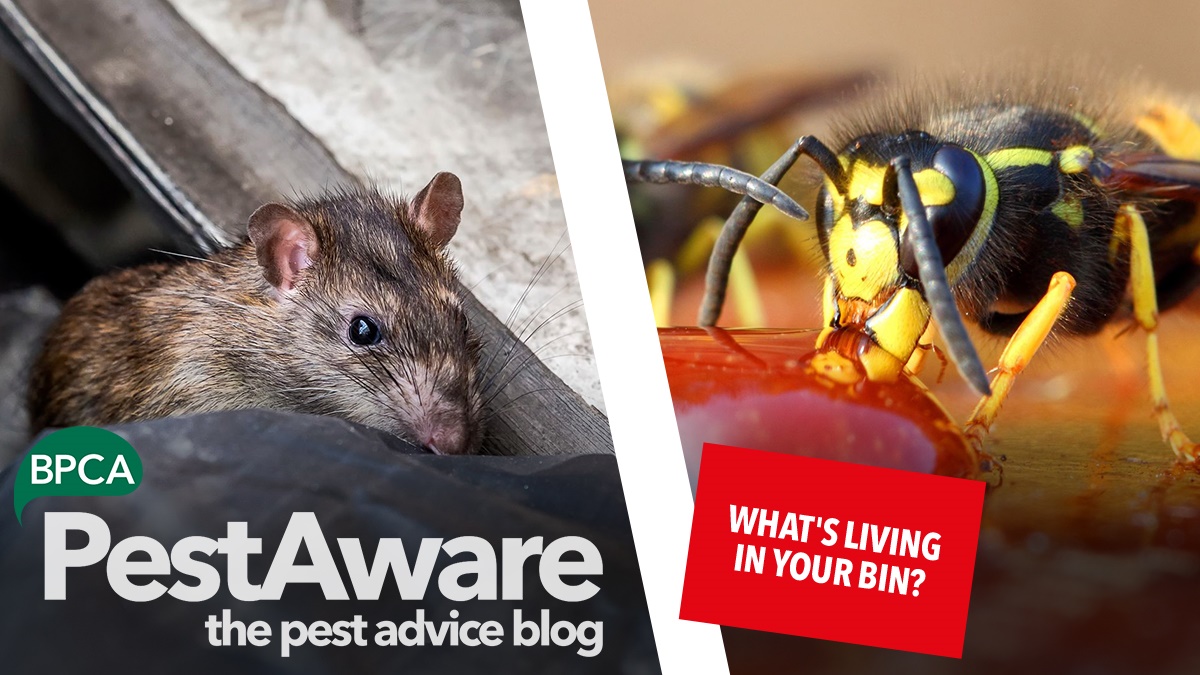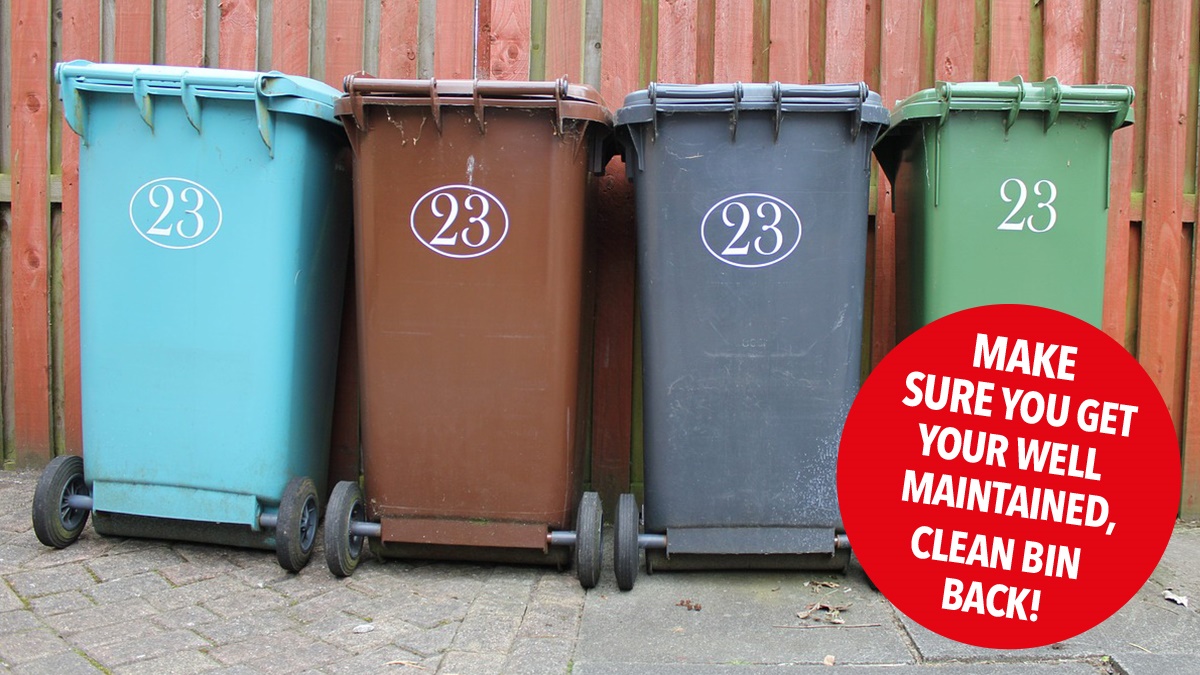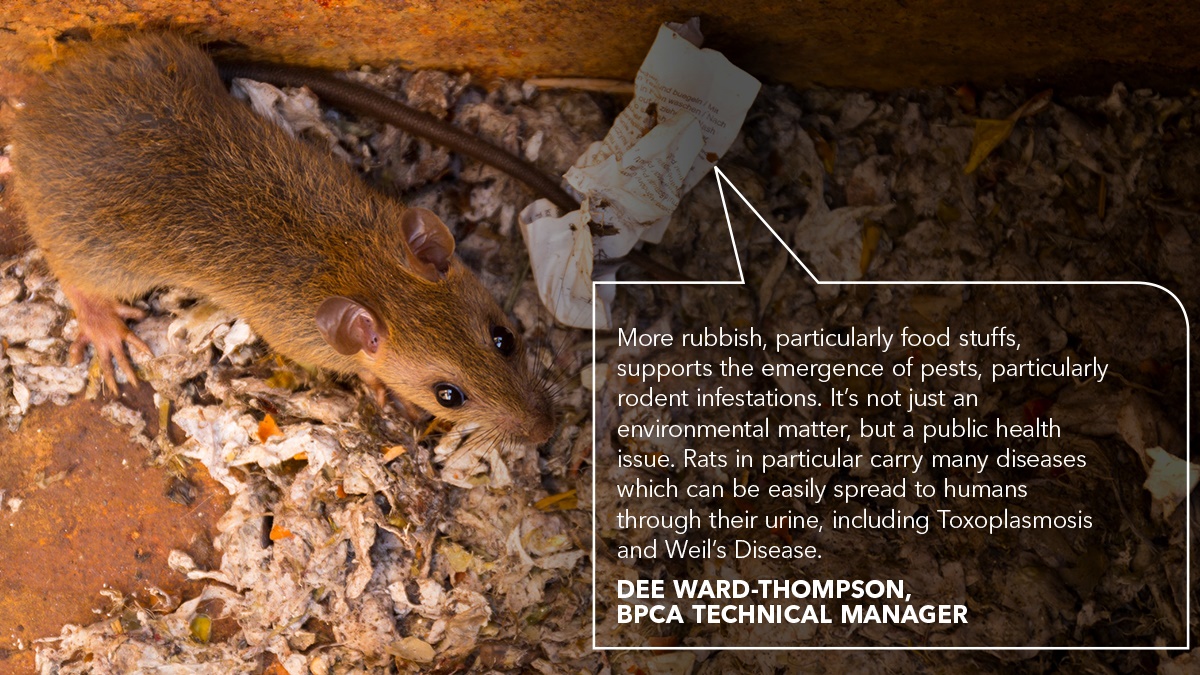Pest prevention | PestAware
With Britain currently in the grip of an unprecedented heatwave, we’ve put together some advice for stopping rats and wasps getting into your household rubbish.
As the temperature soars, so to do the reports of rats and wasps around Britain’s homes and businesses.

All pests need three things to survive and thrive: water, shelter and food. In the Summer, your bins get warmer, and food inside starts to rot quicker.
Rats have pretty impressive sense of smells, and they’re always on the lookout for an easy meal.
Britain’s wheelie bins are currently piping hot so any wasted BBQ food or summer salads are attracting more rodents.
There are all kinds of public health concerns with having rats around your home or business, including disease and property damage.
Wasps are always on the lookout for fermenting fruits rotting in your bins. They’re looking for a quick sugar high – and your bins could be their perfect meal.
What’s worse, wasps get a little inebriated on all this rotting fruit – which means that they’re more likely to sting anyone perceived as a threat.
How do I keep rats and wasps away from my bins this Summer?
1. Always keep lids sealed properly
Even small gaps create easy access for pests. Rats can squeeze through a space as thin as a pencil. Wasps are more likely to make a nest around an easy food source.
2. Get broken bins replaced
If your bins are cracked or broken, ask your local authority for a replacement.

3. Place your bins tactfully
Make sure that bins are kept well away from windows and doors. If possible, place your bins out of direct sunlight to help reduce the smells and decrease the rate of decomposition pests are attracted too.
4. Don’t dump food straight into your wheelie bin
Never put loose food waste straight in the bin. Wrapping it in approved compostable liners, plastic bags or refuse sacks will make sure it doesn’t stick to the sides of containers and will help contain any odours.
5. Don’t let food sit for too long in your kitchen bin
Try to keep any food waste in the wheelie bin. Kitchen bins will attract wasps and flies into your building. Take food waste out to your main bin regularly.
6. Clean all of your bins
It’s a good idea to give your inside and outside bins a rinse with disinfectant and hot water. Alternatively, hire a reputable company to do it for you. Not only will this help with the smell rats and wasps are attracted too, but it’ll also mean if there are any pathogens brought in by pests, you’ll neutralise them. Always wear gloves!

7. Name your bin
Put your house name or number on wheeled bins to make sure you get your clean bin back after collections.
8. Don’t leave your bins out early
If you have to move them to the side of the street for collection, do so as late as possible – preferably not the night before. Bringing your bins out into the open will encourage pests to emerge.
9. Be careful with compost
Keep compost areas well sealed and a good distance from your property. Exposed compost heaps can attract all sorts of wildlife – never mind just wasps and rats!
10. Get rid of your fallen fruit
Make sure that if you have any fruit trees, the fallen fruit is collected quickly, bagged up and disposed of in a sealed wheelie bin. Wasps love gently rotting fruit left on your grass.

Bin collections and pest activity
Council cuts have seen bins collections being reduced to every two or even three weeks in many areas.
The simple fact is the less your bins are collected the more likely you are to get a pest infestation.
Infestations can build up very quickly. Unemptied containers provide the perfect conditions for populations to rise and this can pose a significant threat to public health.
We’d recommend local councils increased bin collections, particularly during heatwaves.
Too late, already have an established infestation?
Smelly bins full of lots of food will attract rats, wasps, flies and potentially all sorts of other nasties to move in around your property.
Wherever there are pests there’s the potential for stings, disease, and property damage – never mind the damage to your reputation if you run a business.
Prevention is always better than cure, however if you have an infestation, it’s time to get some professional help.
A professional pest controller will be able to treat the infestation, quickly and safely. You can find a professional pest controller using the BPCA Find a pest controller tool.
All BPCA members have properly trained staff and are audited to the British Standard for Pest Management, EN 16636. Make sure you're professionally protected and use a BPCA member company every time.
Find a pest controller
Source: PestAware